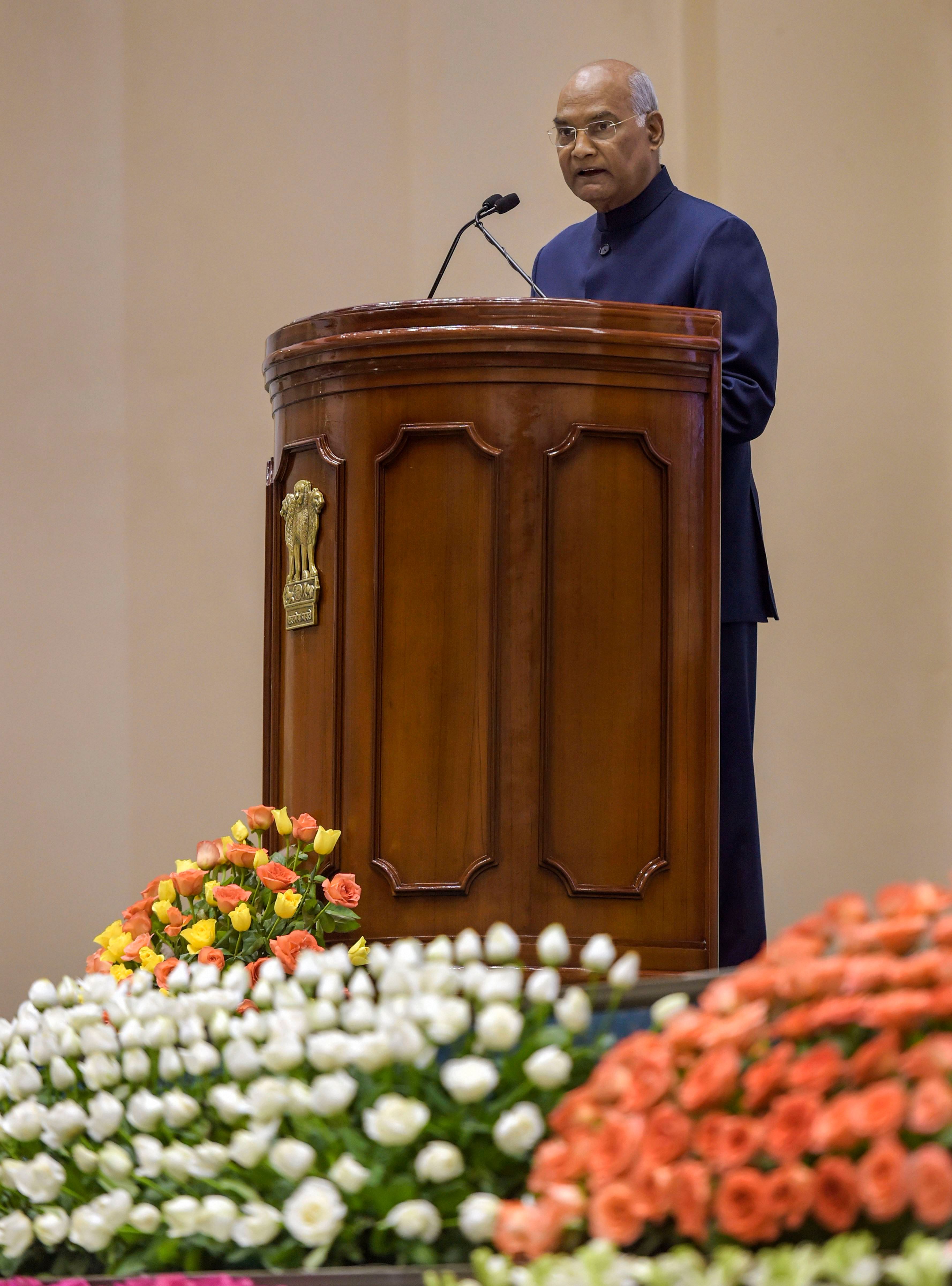
President Ram Nath Kovind has given his nod to the controversial Gujarat Control of Terrorism and Organised Crime (GCTOC) Bill, 2015 which, in the past, had been returned to the state assembly thrice due to various contentious issues.
One of the main features of this new law makes interception of oral, wire or electronic conversations and confessional statements recorded before Superintendent of Police rank officers admissible as evidence in the court of law.
The bill states -- “The evidence collected through the interception of wire, electronic or oral communication under the provisions of any other law shall be admissible as evidence against the accused in the court during the trial of a case…”
Describing the procedure to produce them in the court, the bill says, “Provided that contents of the wire, electronic or oral communication intercepted or evidence derived therefrom shall not be received in evidence or otherwise disclosed in any trial, hearing or other proceeding in any court unless each accused has been furnished, not less than ten days before the trial…with a copy of the order of the relevant authority, under which the interception was authorised or approved.”
The other contentious issue of the evidentiary value of confession before police officers not below the rank of Superintendent of Police, the bill says that “ ..such police officer shall not record any such confession unless, upon questioning the person making it, he is satisfied that the confession is being made voluntarily.”
Announcing the assent of Kovind here in Gandhinagar, Minister of State for Home, Pradeepsinh Jadeja said that this law will give police officers more power in dealing with terrorism, organised crimes such as contract killing, ponzi scheme, land grabbing, narcotics trade and extortion rackets. He also said that President's assent has finally "fulfilled the dream of Prime Minister Narendra Modi."
On two occasions, the bill was sent for President's nod when Modi was chief minister. Before Kovind, the same bill had been refused in 2004, 2008 and 2015 by then presidents APJ Abdul Kalam, Pratibha Patil and Pranab Mukherjee. In 2015, the government re-introduced the bill by renaming it as GCTOC. Earlier, it was known as Gujarat Control of Organised Crime Bill or Gujcoc. The government retained contentious issues such as empowering police to intercept telephone conversation and its admissibility in the court, among others even in the new bill.
Jadeja said, "One of the key features of this bill is interception of telephonic conversation and producing it as legitimate evidence in the court of law. This bill will also provide special courts and appointment of special public prosecutors. We will be able to attach properties and cancel the transfer of properties acquired through organised crimes."